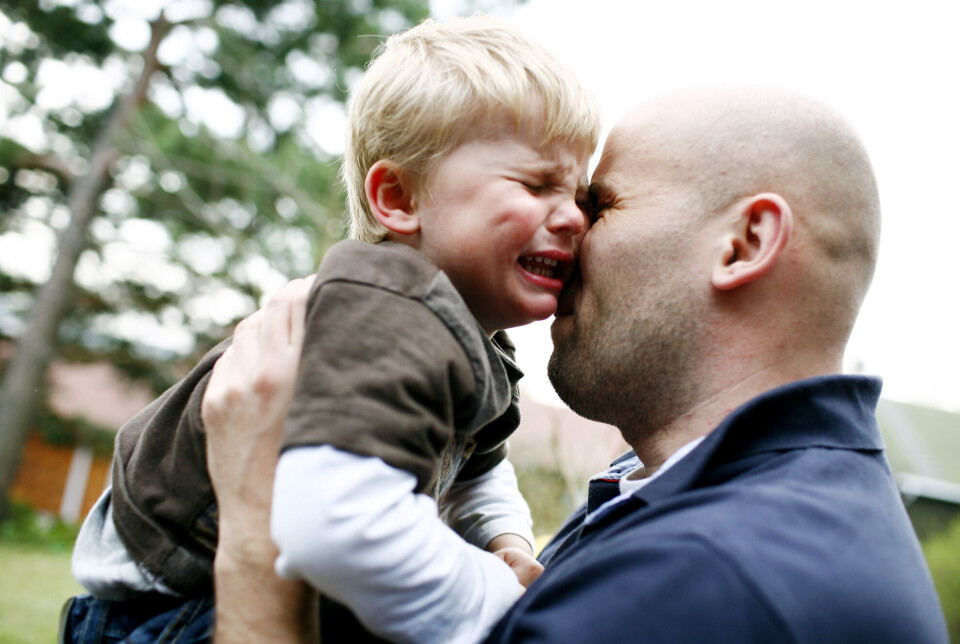
Intensive parenting has become the new way of raising children
Researchers have noticed a dramatic shift in the way children are being brought up.
- Parents who constantly entertain their children.
- Parents who are always present for their children.
- Parents who criticise teachers because their own child does not receive enough attention.
These are three of several characteristics of a new phenomenon in Norway and other Western countries.
Researchers call it ‘intensive parenting.’
Exhausted parents
“The parental role has become so exhausting,” says Raquel Herrero-Arias.
She studies children and parents at the University of Bergen. Now, she wants to start a research project that looks at this phenomenon in Norway and three other countries.
What should my child eat? How should the food be prepared? When should my child go to bed?
“Topics like food and sleep schedules for children have become moralised and politicised,” says Herrero-Arias. “And many parents now feel that they're never good enough.”
High expectations for parents
Herrero-Arias sees a clear contrast to her own upbringing in Spain a few years ago. An upbringing she believes was not that different from what many Norwegian adults experienced.
“At the time, raising children was something that just happened naturally. There were norms back then too. But today, there are much stronger expectations about how parents should develop and guide their children. And this is something that today's parents feel very strongly about,” she tells sciencenorway.no.
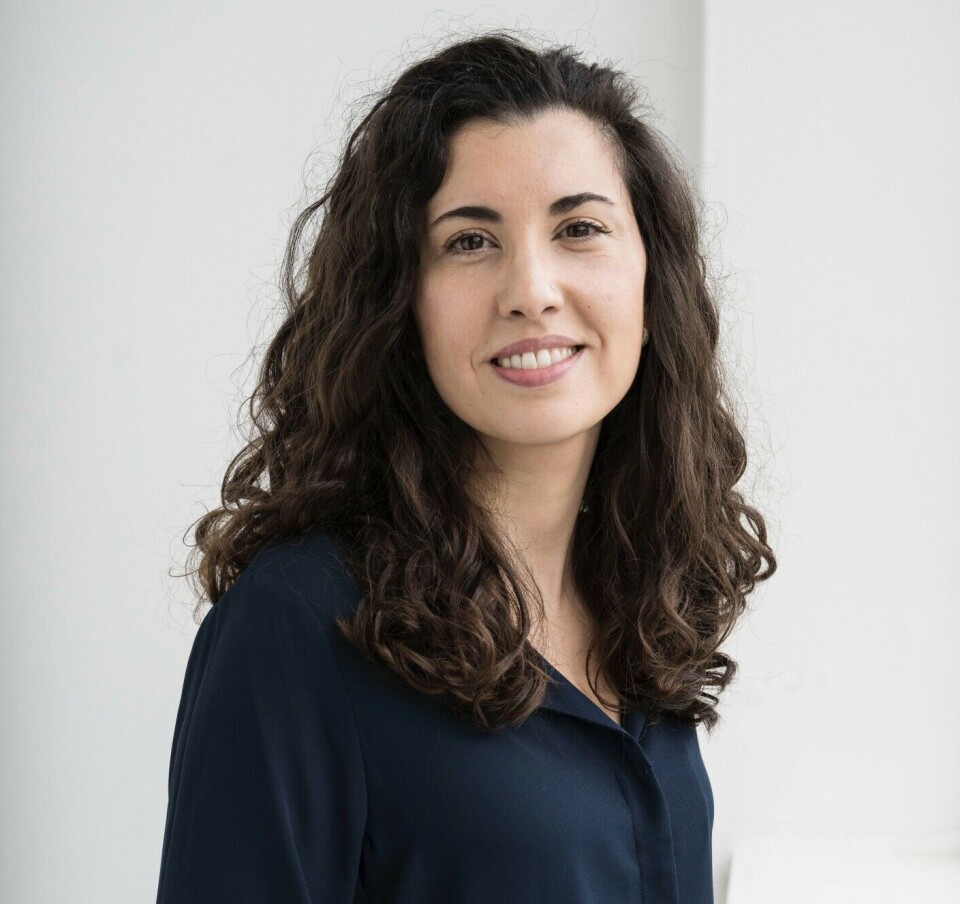
Family has become child-centred
The modern family has clearly become more child-centred.
The researcher points out that parents are also much more invested in their children's feelings.
Many parents think they need to be empathic listeners for their child at all times. They want to come across as supporting their child.
Children's negative emotions are given far more attention.
“This is how the parental role has become more emotionally absorbing,” she says.
Experts guide today's parenting
Herrero-Arias has also observed that all sorts of experts seem to be governing parenting.
In the past, parents of young children might read one book on child-rearing and be satisfied with that.
Today, they google, attend courses, and scour websites – constantly searching for ways to become even better parents.
New mothers feel a strong obligation to breastfeed their child for a long time. Both parents prepare baby food from scratch.
Parents are also expected to read a lot to their children, sing to them, and help them with their homework – all to a much greater extent than parents have ever done before.
Holidays are planned according to the child's wishes.
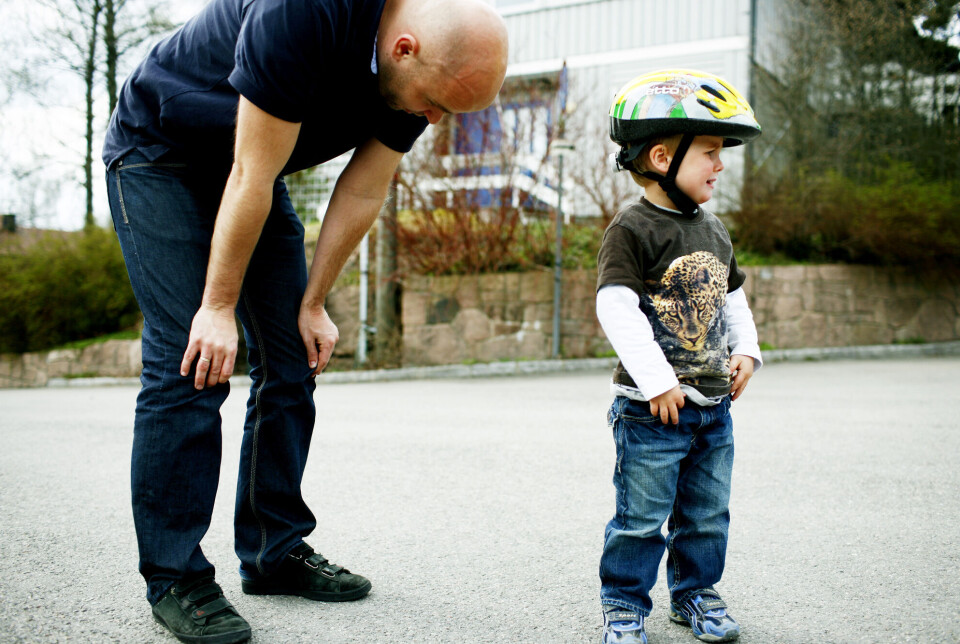
Parents do not trust themselves
“The so-called child-rearing experts constantly tell parents that what they’re doing is the most important job in the world,” says Herrero-Arias.
That may sound good on the surface.
But this view of the parental role – that parents’ practices are the primary cause of a child's success or failure later in life – contributes to making parents even more exhausted, the researcher believes.
“Today, parents no longer trust their natural instincts,” she says.
Herrero-Arias has no doubt that today's parents are much more knowledgeable than parents were one or two generations ago.
“But at the same time, they have less self-confidence. They constantly feel a sense of guilt, as if they’re doing something wrong,” she says.
More anxious parents
Child and family researchers in the USA and Sweden have observed how many parents today view the world around them with more anxiety.
Parents believe that the times we’re living in are difficult for a growing child.
They are especially worried that their child will face many challenges in life.
“Every day, the media remind us that we’re living in a more uncertain world. This probably contributes to parents constantly worrying about possible threats to their children. Protecting children from these threats becomes an almost all-consuming task for some parents,” says Herrero-Arias.
In Sweden and the USA, researchers studying intensive parenting are particularly focused on how this is primarily a widespread phenomenon in the middle class.
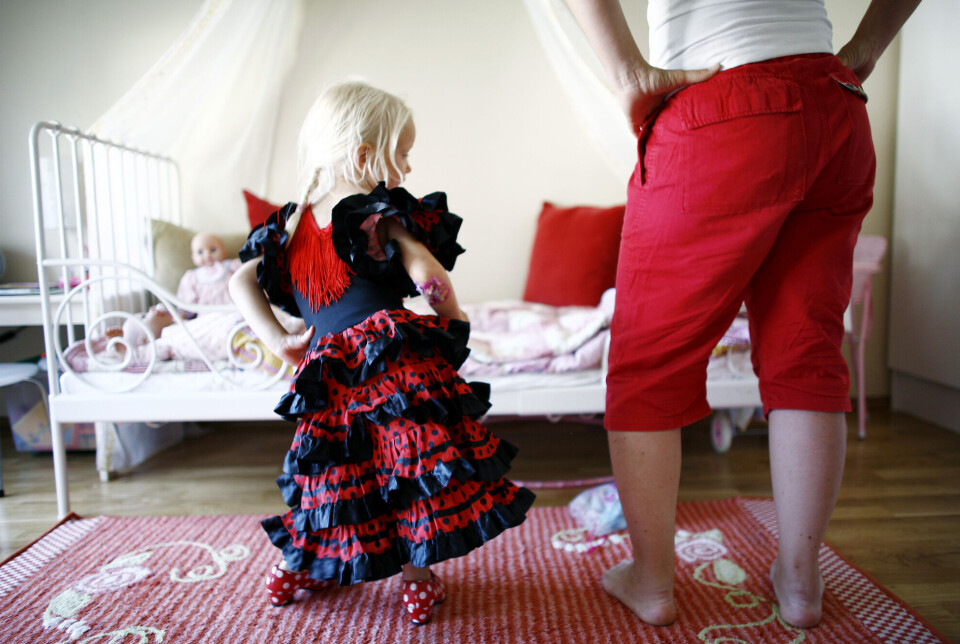
More vulnerable children
Herrero-Arias also believes that parents today clearly see their children as more vulnerable than parents did in the past, both physically and emotionally.
Is the child's diet good enough? Are they having too much screen time? Is the child developing in the right way?
Will they succeed in school? Will they get into university?
“Parents have become very concerned with protecting their children from a lot of the adult world. Instead, they could be preparing their children to face that world,” says Herrero-Arias.
‘Intensive mothering’ and ‘intensive parenting’
Herrero-Arias points out another paradox: The expectation to spend more time with the child has emerged at the same time as women are increasingly expected to participate in the workforce.
“Sociologist Sharon Hays was the first to point this out in 1996. She was probably also the first to use the term ‘intensive mothering.’ Now, some 30 years later, we can see that intensive parenting also involves men to a much greater extent,” she says.
“In much of the Western world, fathers, just like mothers, are now expected to be available for their children at all times,” she says.
As a result, the term used by international researchers has become 'intensive parenting.'
Overprotectiveness
In Sweden, the research project Better safe than sorry? aims to investigate intensive parenting and overprotectiveness of children right up until they become young adults.
Terese Glatz, an associate professor of psychology at Örebro University in Sweden, is one of the researchers who believes that many parents today have a fundamentally pessimistic view of the outside world.
“One idea we have is that parents who see the world as scary and competitive tend to overprotect their child to the point where the child does not get the opportunity to learn how to solve problems on their own,” Glatz tells the daily newspaper Svenska Dagbladet (link in Swedish).
Parents take over tasks that the child could and should have handled themselves, according to the Swedish researchers.
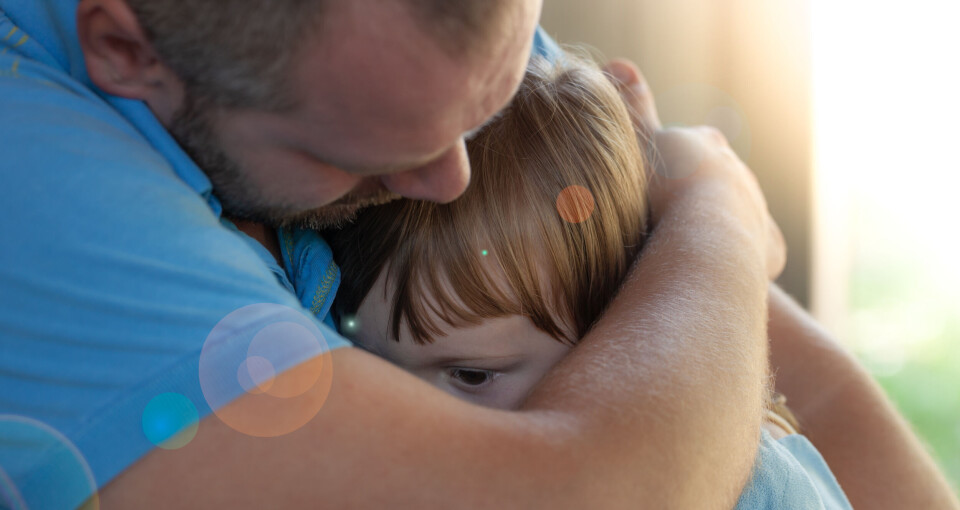
Living vicariously through the child’s success
Glatz has also researched a phenomenon where some parents tie their own self-esteem to their child's achievements.
“If the child succeeds, for example through good grades or making good choices in life, it becomes proof for the parent that they, too, have succeeded,” she says.
As a parent, you obviously want your child to succeed, the researcher points out. There is nothing wrong with that.
But if it reaches the point where a parents' self-worth depends on the child's success, this can have negative consequences for the child in the long term.
Overly sensitive children
Svenska Dagbladet also interviewed Catharina Glaas, who has been a teacher for children aged 10-12 for 22 years. She has noticed a growing trend in schools where children are becoming less independent and less solution-oriented.
“For example, school staff now have to accompany 13-year-old children into the changing room after gym class because they’re so unaccustomed to taking responsibility for themselves,” she says.
Glaas also observes that the oldest children in primary school are having more difficulties resolving conflicts or problems without adult intervention.
She is critical of the development where adults are always available to help and support their children, and fears that this can lead to children becoming overly sensitive.
“When this generation of children reaches the age of 20 and starts working, I'm afraid they could become very sensitive. They’re not used to gritting their teeth and pushing through challenging situations,” says Glaas.
“They've never really had to do anything boring. Their parents have been there all along, fixing and adapting their lives and their needs, ensuring the children avoid facing challenges,” she says.
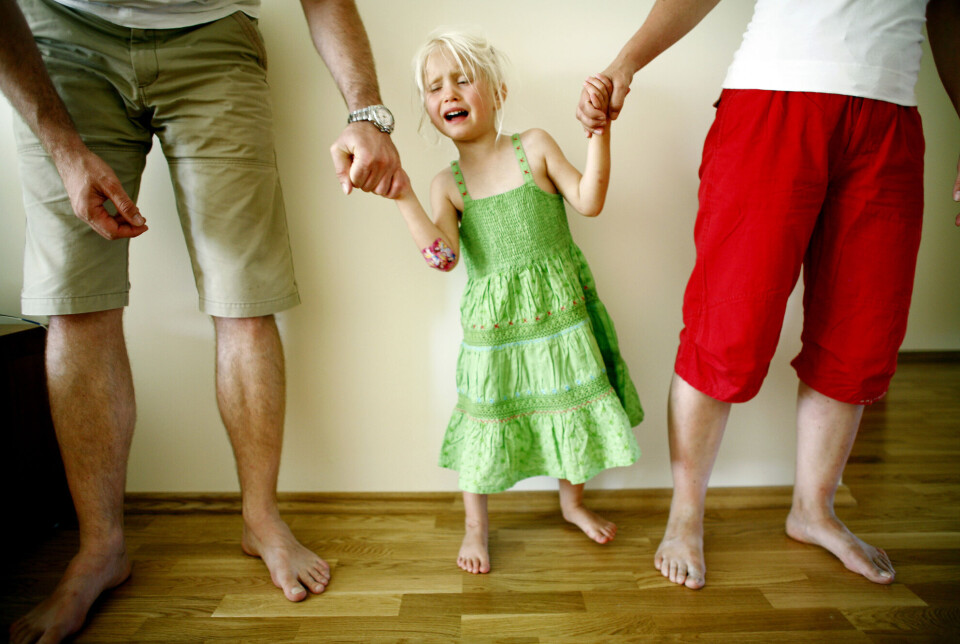
Boredom is good for children
Stein Erik Ulvund, who holds a PhD and is a professor emeritus in education at the University of Oslo, has written several books on child-rearing.
“Children today don’t get bored enough. They benefit from being bored. They also benefit from sometimes hitting a rough patch. It's something they learn from,” the professor tells sciencenorway.no.
Ulvund believes that the expert-driven culture around children and child-rearing has gone way too far.
“For the most part, this only contributes to parents feeling guilty. A lot of the advice parents receive from self-proclaimed experts is simply useless. And their advice is almost never based on research,” he says.
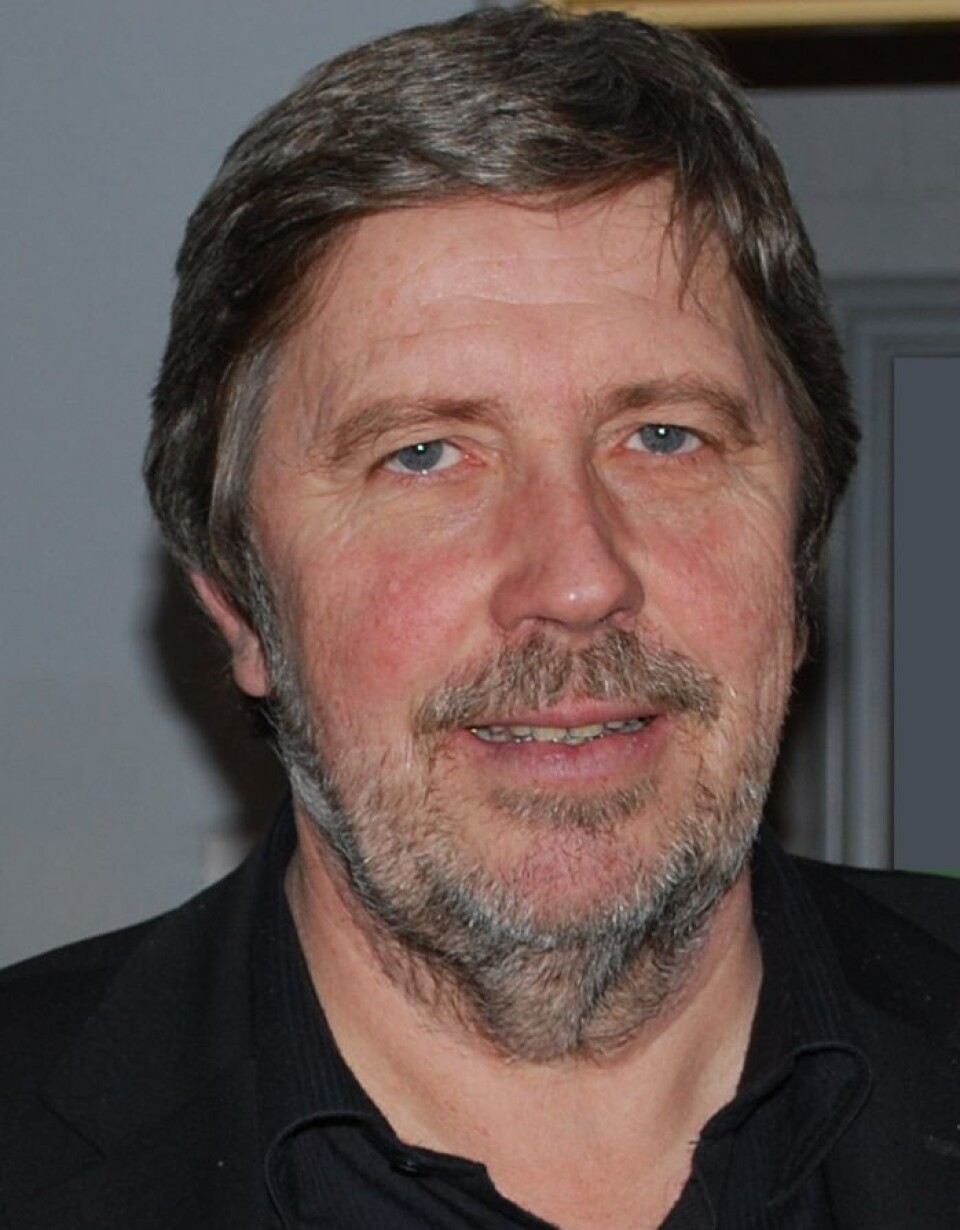
Ulvund is keen to convey that child-rearing is really not that complicated.
He stresses that children are very different as individuals, and there is no one-size-fits-all approach to child-rearing.
Parents have an audience
Martin Forster, a psychologist and researcher on children and parenting at the Karolinska Institute in Stockholm, focuses on how social media and the increased attention on child-rearing have made the parental role more central to parents' identities. It has also made parents more aware that they have an audience.
“How we behave in our role as parents affects how we see ourselves and how others see us,” Forster tells Svenska Dagbladet (link in Swedish).
“Overall, we’ve probably become more sensitive as parents because we feel like we’re being monitored more," he says.
Not everything can be controlled
Like Ulvund, Forster believes that parents must accept that they cannot control everything in parenting. Being a 'good enough' parent involves recognising that mistakes are an unavoidable part of life and rearing children – and that it is not possible to always respond immediately to a child's emotional or physical needs.
Forster hopes that if parents can adopt a little more of that perspective, they might become less anxious.
“Then you might also come to realise that your role as a parent is not as overwhelmingly important as you think it is,” he says.
Sources:
Gauthier et al. Exploring the concept of intensive parenting in a three-country study, Demographic Research, 2021.
Hayes, S. The Cultural Contradictions of Motherhood, Yale University Press, 1998. ISBN: 9780300066821
Svenska Dagbladet: Ängsliga föräldrar: Livrädda för att deras barn ska bli arbetare (Anxious parents: Terrified that their children might become labourers), August 20, 2024.
Svenska Dagbladet: Vara förälder i Sverige i dag svårare på flera sätt (Being a parent in Sweden today is more difficult in several ways), August 23, 2024.
The New York Times: The Relentlessness of Modern Parenting, 2018.
———
Translated by Ingrid P. Nuse
Read the Norwegian version of this article on forskning.no

Subscribe to our newsletter
The latest news from Science Norway, sent twice a week and completely free.



































